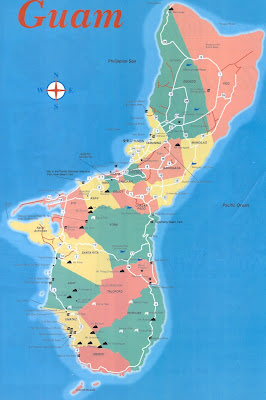Tales of Decolonization #17: Life in Free Association

When discussing the future possibilities for Guam in terms of political status change and decolonization, the talk inevitably turns towards the other islands in Micronesia as examples. They are invoked sometimes as cautionary tales, meant to frighten those interested in learning more into accepting less in political terms, and just embracing one's colonial status in order to avoid becoming a place such as the Federated States of Micronesia or FSM. At the same time, a place such as Palau/Belau, which has become a darling of international media lately, is often pointed to as providing a example for Guam to follow. One things that makes this sort of exercise intriguing is the fact that the islands surrounding Guam can all help us understand more about the nature of Free Association, both its advantages, but also its potential dangers. The CNMI to the north of Guam represents Free Association in the sense of intimately connecting oneself to their colonizer, perhaps in a way that re
